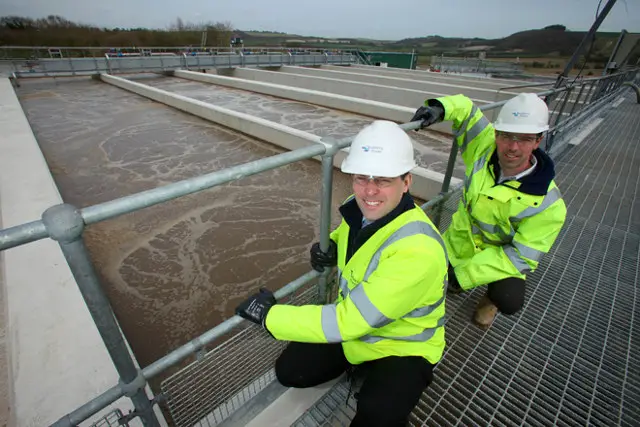Southern Water have today been slapped with a £126m ‘punishment’ for a number of failures in relation to wastewater treatment works between 2010-2017.
As well as a criminal investigation being launched by the Environment Agency, the regulator, Ofwat, announced today they were intending to impose a penalty on the water company, which supplies the Isle of Wight as well as Hampshire, Kent and Sussex.
The company were found to have manipulated the wastewater sampling process, misreporting information about the performance of a number of sewage treatment sites. There are no mentions in the Ofwat report of the Isle of Wight, but OnTheWight has been contact with the Environment Agency and Southern Water to find out more.
Direct impact on the environment
Any failure of a wastewater treatment works has a direct impact on the environment, particularly bodies of water, such as rivers or streams, into which treated wastewater is released.
Ofwat say:
“We have concluded that Southern Water has deliberately misreported data to us about the performance of its wastewater treatment works.
“We have also concluded that it has failed: to have adequate systems of planning, governance and internal controls in place to be able to manage its wastewater treatment works; to accurately report information about the performance of these works; and to properly carry out its general statutory duties as a sewerage undertaker, to make provision for effectually dealing with and treating wastewater.”
As well as a fine of £3m, Ofwat will pay each customer at least £17 in 2021 and at least £11 per year for the following four years, amounting to a total of £123m.
Surfers against sewage
Earlier this month Isle of Wight Surfers Against Sewage posted on Facebook about ‘polluted water’ in Sandown, where they said raw sewage was being pumped into the sea following heavy rain fall.
They’ve kept an eye on the situation and posted regular updates about all parts of Isle of Wight coastline. This information comes from the free Safer Seas Service App, which is built in conjunction with SAS and the Environment Agency.
In response, Southern Water said,
“During or following rainfall, there can be releases of heavily-diluted wastewater such as from baths or sinks into watercourses and coastal waters.
“These stormwater releases are in line with our strict environmental permits and permitted by the Environment Agency to prevent homes from flooding. Southern Water is required to provide the Environment Agency with information about the operation of our assets. We can confirm this was the case following the heavy rainfall on the Isle of Wight.”
Read more here.
Southern Water CEO: No excuses for the failings
Ian McAulay, Southern Water’s Chief Executive, said:
“In 2017, I was brought in to drive change and transformation. Since then we have been working very hard to understand past failings and implement the changes required to ensure we better deliver for our customers and meet the standards they deserve.”
“We are deeply sorry for what has happened. There are no excuses for the failings that occurred between 2010 and 2017 outlined in Ofwat’s report. We have clearly fallen far short of the expectations and trust placed in us by our wastewater customers and the wider communities we serve.”
“We are fully committed to continuing the fast pace of change delivered since 2017. There is a lot more work to do but we’re pleased that this proposal agreed with Ofwat enables us to fully make amends to our customers and regain their trust as quickly as possible.”
Stewart: Inappropriate to speculate
Leader of the Isle of Wight Council, Councillor Dave Stewart said:
“On behalf of our residents, visitors and our Island environment it is vital for us to be informed if wastewater sampling specific to our area was involved in this matter or not.
“We will be in contact with Southern Water and the relevant investigating parties, including Ofwat and the Environment Agency, to establish this detail. Until then it would be inappropriate to speculate.
“Public safety and our beautiful and delicately-balanced environment are of the utmost importance to us all, and as a council we are committed to being rigorous in their protection and defence.”
Formal consultation
Members of the public are invited to respond to the consultation which runs until 19th July.
Source: BBC





